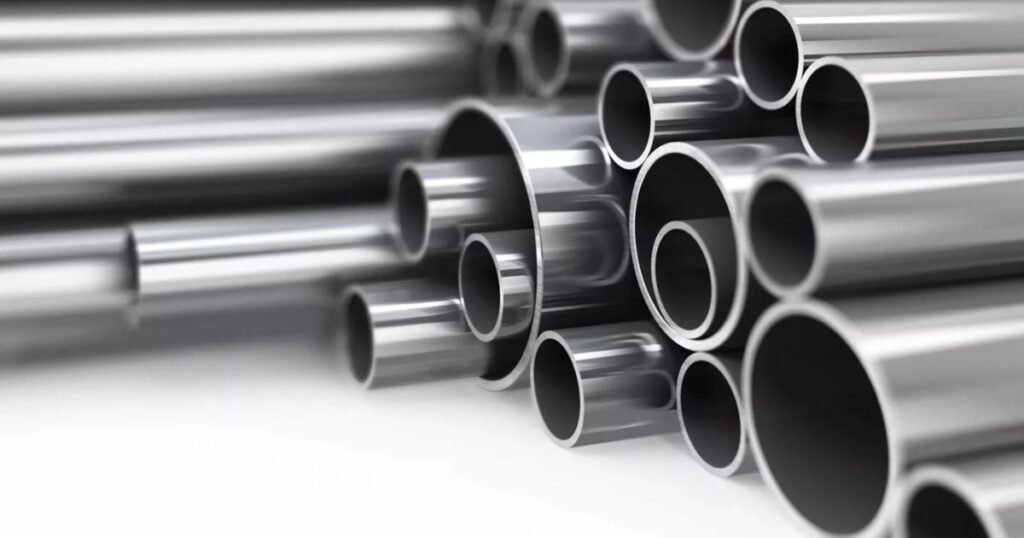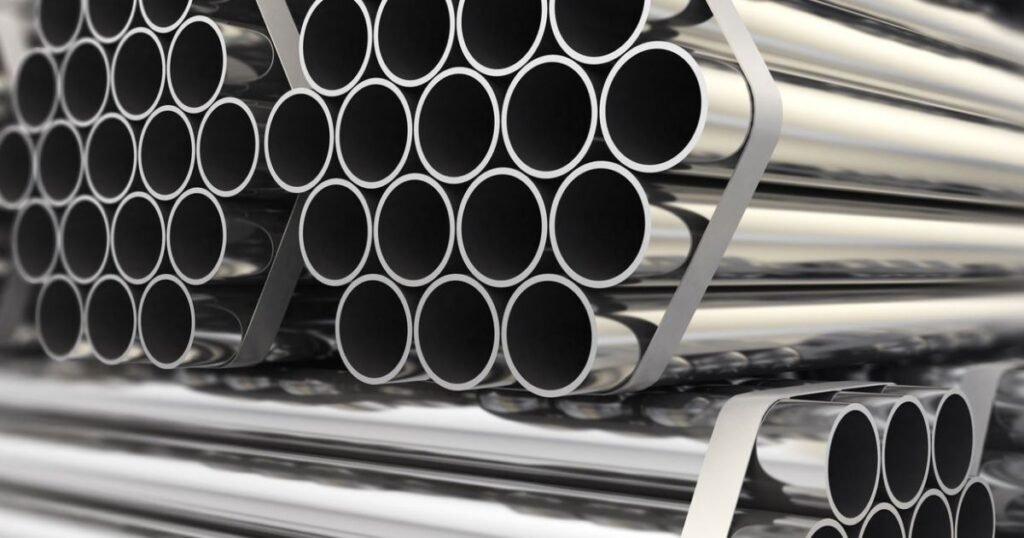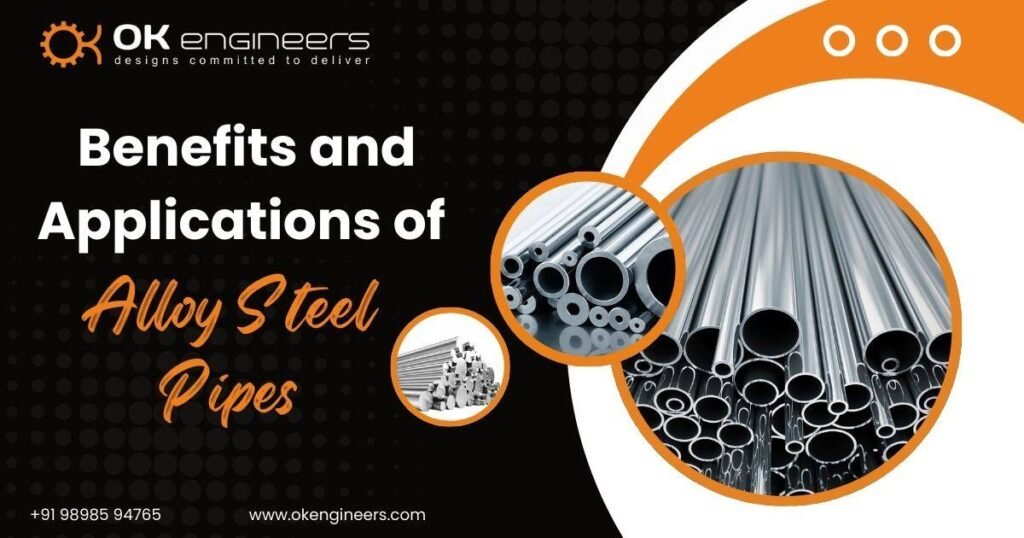Alloy Steel Pipes have become a cornerstone in various industries due to their exceptional strength, durability, and versatility. These pipes, engineered with a mix of metals like manganese, nickel, chromium, and molybdenum, offer advantages that make them ideal for diverse applications. In this blog, we will explore the benefits of alloy steel pipe, their wide-ranging applications, and why they are a preferred choice for many industries.
What Are Alloy Steel Pipes?
Alloy steel pipes are made by combining steel with other alloying elements to enhance specific properties. This fusion improves their performance in challenging environments, making them highly sought after in construction, energy, and manufacturing sectors. The composition of these pipes can be customized to meet the unique requirements of different applications, ensuring optimal performance.
History of Alloy Steel Pipes

The history of alloy steel pipes dates back to the late 19th and early 20th centuries when advancements in metallurgy began transforming industrial applications. Alloy steel was developed as a way to enhance the strength, durability, and corrosion resistance of traditional steel by incorporating elements such as chromium, molybdenum, manganese, and nickel. This innovation was pivotal in addressing the limitations of carbon steel in demanding environments and escalating the applications of alloy steel pipe.
The early 1900s saw alloy steel pipe gaining prominence in the construction of large-scale infrastructure projects like bridges, railroads, and buildings. With the rise of the oil and gas industry in the mid-20th century, the demand for alloy steel pipe surged due to their ability to withstand high pressures, extreme temperatures, and corrosive environments. These pipes also became critical in the energy sector, particularly in nuclear power plants and high-temperature applications.
Over time, advancements in manufacturing processes, such as seamless pipe production and heat treatment techniques, further improved the quality and reliability of alloy steel pipe. Today, they are indispensable in industries ranging from aerospace and automotive to petrochemicals and construction, embodying a legacy of innovation and engineering excellence that continues to evolve.
Benefits of Alloy Steel Pipes
1. Exceptional Strength and Durability
One of the primary benefits of alloy steel pipe is their superior strength. These pipes can withstand high pressures and temperatures, making them perfect for demanding applications in oil and gas refineries, power plants, and chemical industries. Their durability reduces the need for frequent replacements, ensuring cost-efficiency.
2. Corrosion Resistance
Alloy steel pipes are designed to resist corrosion, even in harsh environments. The addition of elements like chromium and nickel provides a protective barrier against rust and chemical damage, making these pipes ideal for marine and industrial settings.
3. Versatility
The flexibility to modify the composition of alloy steel pipe makes them suitable for a wide range of uses. Whether you need pipes for transporting fluids, constructing buildings, or creating machinery components, these pipes can be tailored to your specific needs.
4. Heat Resistance
With excellent heat resistance, alloy steel pipe maintain their integrity even under extreme thermal conditions. This feature is particularly beneficial for applications in high-temperature environments like boilers and heat exchangers.
5. Cost-Effectiveness
Although alloy steel pipe may have a higher upfront cost compared to standard steel pipes, their long lifespan and low maintenance requirements make them a cost-effective solution in the long run.
These benefits of alloy steel pipe make them so applicable in various industries.
Applications of Alloy Steel Pipes

1. Oil and Gas Industry
One of the most prominent applications of alloy steel pipe is in the oil and gas sector. These pipes are used for drilling, transporting oil and gas, and constructing pipelines. Their ability to withstand high pressures and corrosive materials makes them indispensable in this field.
2. Power Plants
In power generation facilities, alloy steel pipe are used in boilers, heat exchangers, and steam pipelines. Their heat resistance and strength enable them to perform efficiently in extreme conditions.
3. Construction Industry
The construction sector relies on alloy steel pipe for structural applications. These pipes are used in building frameworks, bridges, and skyscrapers, where their strength and durability ensure safety and longevity.
4. Chemical and Petrochemical Industries
In chemical processing plants, alloy steel pipe are utilized to handle corrosive substances and extreme temperatures. Their resistance to chemical reactions ensures operational safety and efficiency.
5. Automotive and Aerospace Sectors
The lightweight yet robust nature of alloy steel pipe makes them ideal for manufacturing automotive and aerospace components. They contribute to improved fuel efficiency and performance.
Final Thoughts
This guide from OK Engineers, Alloy steel pipes have revolutionized modern industries with their unmatched strength, durability, and adaptability. From the benefits of alloy steel pipe like corrosion resistance and cost-efficiency to their wide-ranging applications of alloy steel pipe in industries like construction, energy, and manufacturing, these pipes have proven to be a reliable choice.
FAQs
The key benefits of alloy steel pipe include exceptional strength, corrosion resistance, heat resistance, versatility, and cost-effectiveness. These features make them ideal for use in demanding environments.
Applications of alloy steel pipe span across industries such as oil and gas, power plants, construction, chemical processing, and automotive manufacturing.
Choosing the right alloy steel pipe depends on factors like operating pressure, temperature, and the type of environment it will be used in. Consult with experts to select the best option.
Yes, while they may have a higher initial cost, alloy steel pipe offer long-term savings due to their durability, low maintenance, and superior performance.
Alloy steel pipe include additional elements like chromium, molybdenum, or nickel, enhancing their strength, corrosion resistance, and temperature tolerance, making them more durable than carbon steel pipes.
Yes, alloy steel pipe are specifically designed to handle high-pressure environments, making them ideal for industries such as oil and gas, power plants, and chemical processing.
Regular inspections for wear, corrosion, or cracks are essential. Cleaning and applying protective coatings can extend the life of alloy steel pipe, especially in harsh environments.
Follow Us On : Facebook, Instagram
You May Also Like : Brass Nozzle Manufacturer, Brass Arm Back Manufacturer



